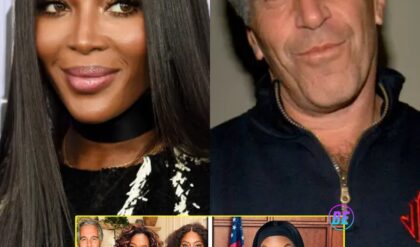Monique, the talented and outspoken actress, has never been one to shy away from speaking her mind, especially when it comes to issues of fairness and equality in Hollywood. Recently, she made headlines once again when she publicly called out Oprah Winfrey for allegedly using and abusing fellow actress Taraji P. Henson. Monique’s criticism stems from her belief that Oprah, along with other powerful figures in Hollywood, has perpetuated a system that consistently undervalues and mistreats Black women in the industry.
During a candid interview, Monique shared a deeply personal story that highlighted the struggles many Black actresses face in Hollywood. She began by recounting her own experience of growing up in poverty, where her family had to make do with whatever they could to survive. When she received her first big paycheck, she initially felt immense gratitude toward those who had given her the opportunity. However, it didn’t take long for her to realize that the amount she was being paid wasn’t nearly what it should have been. This realization led Monique to start questioning the fairness of the compensation she and other Black actresses were receiving.

Monique’s concerns were further amplified when she saw Taraji P. Henson, a fellow Black actress whom she deeply respects, appear broken and defeated on various platforms. This was particularly painful for Monique to witness, as she had once had a conversation with Taraji over a decade ago, during the filming of *The Monique Show*. In that conversation, Taraji had expressed the belief that one had to keep working hard until their turn for success finally came. Monique, however, had warned her that most people die before their turn ever arrives, especially in an industry that is often unforgiving to Black women.
The heart of Monique’s frustration lies in the fact that, despite her own efforts to speak out against the injustices in Hollywood, her words never seemed to gain the traction or support they deserved. She pointed out that when Taraji echoed similar sentiments, the industry suddenly paid attention.
Monique doesn’t begrudge Taraji her moment of recognition, but she questions why her own voice was dismissed for so long. She believes that part of the reason is the industry’s perception of her as a “big, fat Black woman” who should be grateful just to be included. Moreover, Monique’s decision to call out powerful figures like Oprah Winfrey, Tyler Perry, and Lee Daniels by name made her a target for backlash, as it goes against the unspoken rule in Hollywood to keep such criticisms vague.
Monique has consistently fought for the fair treatment of Black women in Hollywood, even though it has cost her dearly in terms of opportunities and relationships. She highlighted the disparity in treatment by comparing herself to Melissa McCarthy, a white actress with a similar track record of success. Monique argued that if she were white, she would have received far more opportunities and financial rewards than she has as a Black woman.
Monique also expressed disappointment in how some of her peers, including D.L. Hughley, seemed to accept whatever compensation they were offered, rather than fighting for what they truly deserved. She emphasized that her refusal to accept anything less than fair pay was not about being difficult, but about standing up for her worth and the worth of other Black women in the industry.

The tensions between Monique and other Hollywood icons, including Oprah Winfrey, Tyler Perry, and Steve Harvey, have been simmering for years. They reached a boiling point in 2009 when Monique refused to promote the film *Precious* at the Cannes Film Festival without being paid fairly. Despite fulfilling all her contractual obligations to promote the film under Lee Daniels Productions, she was criticized for not going above and beyond without additional compensation.
Monique’s willingness to speak out, both publicly and privately, has made her a polarizing figure in Hollywood. She believes that the true test of character is how someone speaks about you behind your back, not just to your face. Monique has always been transparent about her grievances, and she continues to call out those she believes are perpetuating harmful practices in the industry.
Ultimately, Monique’s fight is not just about her own career but about creating a more equitable and just environment for future generations of Black actresses. She wants to hold powerful figures accountable for their actions and ensure that the next generation of Black talent doesn’t have to endure the same struggles she has faced. Despite the challenges, Monique remains steadfast in her commitment to speak the truth, no matter the cost.





